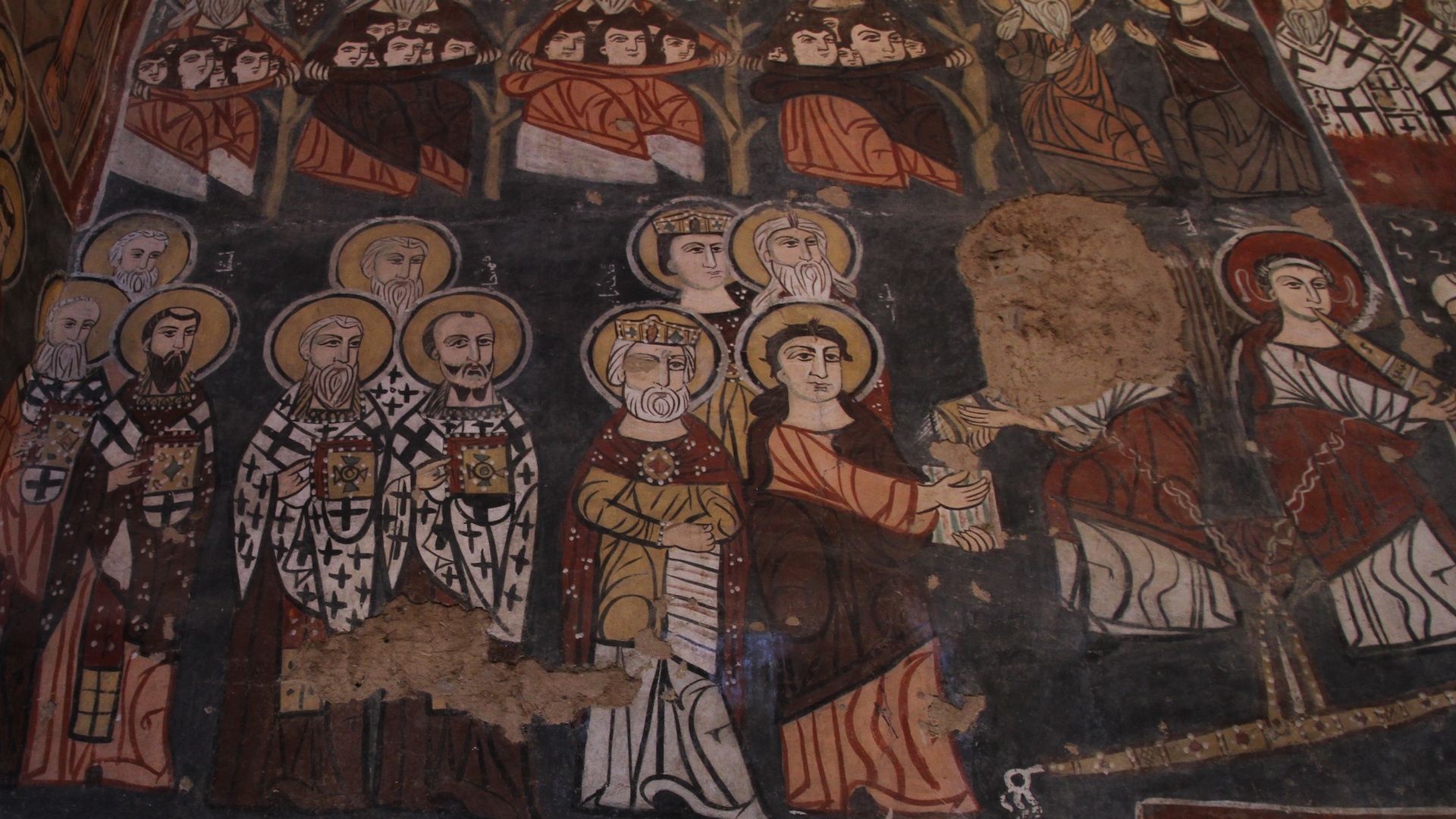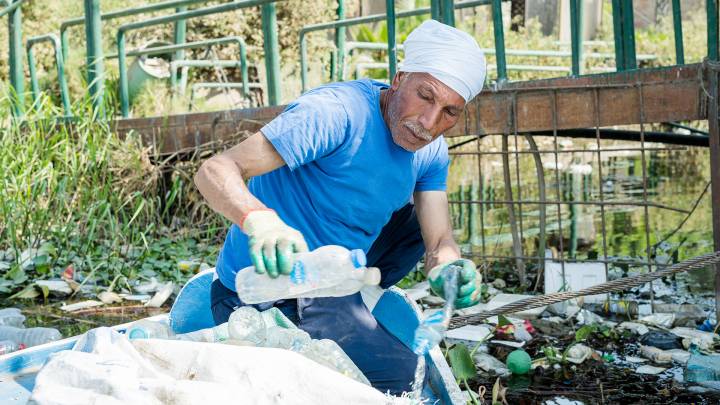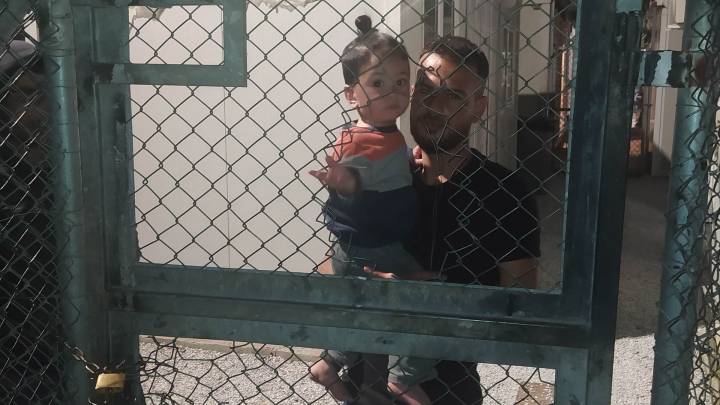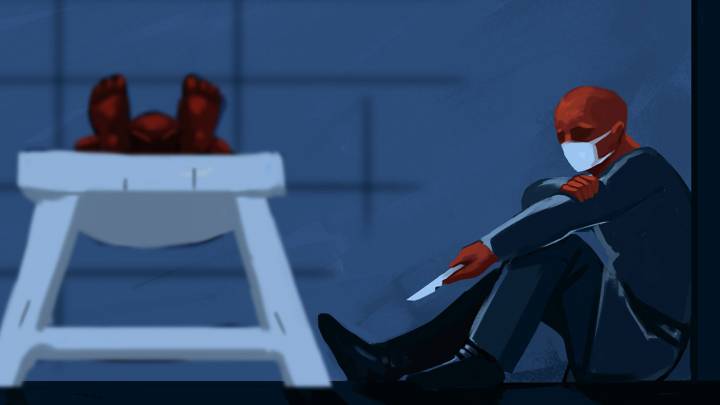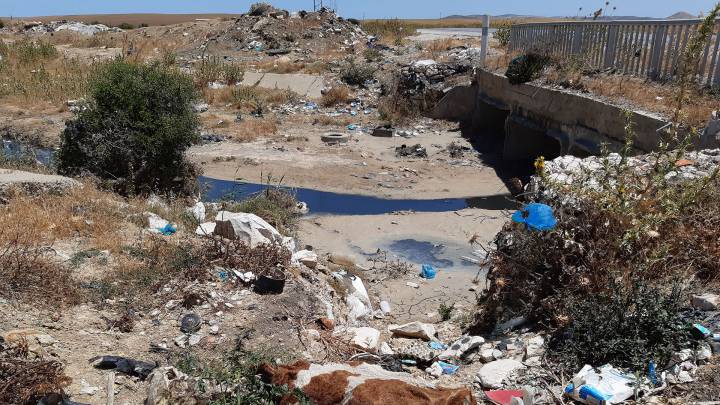Religious beliefs play a fundamental role in the hygienic practices, from preparation of food to handwashing rituals. However, some claim that their faith alone is a strong enough disinfectant and thereby help to spread the virus in the Middle East.
While governments throughout the Middle East and North Africa have taken measures to promote social distancing, debates are raging over the continuation of highly attended religious gatherings in shrines, mosques, churches, synagogues and other holy sites throughout the region.
Iran is now considered one of the global epicentres of COVID-19. As of 15 March, the official number of those infected with the virus stands at over 13,900 and more than 720 virus-related deaths, although there are fears that the figures may be significantly higher. One of the places where the outbreak seems to have emerged is one of the country’s religious centres, Qom, a two-hour drive south of Tehran. Among the city’s numerous religious seminaries sits the Fatimah Masumeh Shrine, dedicated to the eponymous daughter of the seventh Imam. It is one of the holiest sites in Shiism, making it a destination for thousands of pilgrims from across Iran and the world every year.
Ayatollah Mohammad Saidi, the head of the shrine, insisted that the place of worship should remain open to the faithful: “This sacred shrine is a house of healing of physical and spiritual illness.” In one of two viral videos, a man is seen licking and kissing the shrine’s gates after saying: “I'm not scared of coronavirus”. A second video shows a man at the Imam Reza Shrine in Mashhad, the second-most-populous city in Iran, saying he is there to lick the shrine: “so I can fall ill, this way I have removed the virus. You can come and visit.” Both men have been subsequently arrested.
As part of a raft of measures taken to contain the virus, Iranian authorities have announced the closure of the Imam Reza Shrine during Nowruz, which begins on 20 March. The highest court in the land has also declared a public ban on weddings and community or religious ceremonies where large crowds gather. Following the announcement of the immediate closure of both the Iman Reza and Fatimeh Masumeh shrines on the evening of 16 March, police were called in to disperse crowds who were attempting to storm the two sites.
Shia cleric Muqtada al-Sadr has published videos on his Facebook page about his visit to the shrine of Imam Ali in Najaf.
In neighbouring Iraq, it was announced on the official website of Imam Hussein Shrine in Karbala on 5 March that Friday prayers would be cancelled due to concerns over the spread of the coronavirus. For the first time since the fall of Saddam Hussein, the country’s top Shia cleric, Ayatollah Ali al-Sistani, has not let his weekly Friday sermon read since 6 March. Not all Shiite clerics, however, are in favour of closing shrines and pilgrimage sites. Shia cleric Muqtada al-Sadr has published videos on his Facebook page about his visit to the shrine of Imam Ali in Najaf, which he says he does daily to prevent the shrine’s closure.
As for Iraq’s Sunni community, the Iraqi Fiqh Council of Senior Scholars for Preaching and Fatwas issued an edict on 27 February, allowing the elderly and those with compromised immunity systems to miss Friday prayers. The council urged the Iraqi authorities to put a stop to all forms of tourism and encouraged worshippers to follow the advice of the competent health authorities. On 12 March, a prominent cleric on the council, Sheikh Abd al-Wahhab al-Samarrai, argued that the Sharia prohibits “preying on the needs and vulnerabilities of people during such crisis” in reference to the practice of price gouging when selling facemasks, disinfectants and sanitisers.
In light of the coronavirus pandemic, on 27 February the Saudi authorities prohibited international travel to the country, including the holy cities of Mecca and Medina, which attract around 12 million pilgrims every year. At the beginning of March, Ali al-Qaradaghi, an influential Sunni religious scholar, issued a fatwa stating pilgrimages can be temporarily prohibited because of the corona pandemic.
Egypt’s Coptic Christians are still holding weekly services, including receiving communion which involves worshippers drinking consecrated wine from a common spoon.
Ahmed al-Tayeb, the Grand Imam of Al-Azhar in Egypt, praised the Saudi authorities’ decision to temporarily ban pilgrimages. On 15 March, Al-Azhar’s Senior Scholars Authority, headed by al-Tayeb, issued a fatwa saying that it was permissible to suspend congregational Friday prayers because “the top priority of the Sharia is to protect people and maintain their health.” Egypt’s minister of religious endowments, Mohamed Mokhtar Gomaa, announced the closure of all mausoleums and shrines nationwide and the suspension of classes at Islamic cultural centres affiliated with the ministry for two weeks.
Meanwhile, Egypt’s Coptic Christians are still holding weekly services, including receiving communion which involves worshippers drinking consecrated wine from a common spoon called a Mesteer. The Coptic Church has said that women need only carry their own scarves instead of using the ones provided. On 14 March, the Coptic Church announced that it was suspending all of its educational activities, but somewhat paradoxically, in the same statement it also announced that multiple masses, in preparation for the upcoming Easter celebrations, may be held on the same day to lower attendance of each individual gathering.
Some prominent Copts, however, have not been as cautious. On the independent Christian television channel CTV, presenter Nancy Magdy promoted her belief that “utensils that have been anointed with Myron, the Chrism (holy oil), and then come in contact with the blood of the Saviour, can never be a source of infection. Rather, they are rather a source of healing.” Sameh Masry, a Christian blogger, struck a different tone, arguing that if Copts do not change, “they will become a major cause for spread of the virus”.
As Easter approaches, millions of Christian pilgrims will be unable to visit the Church of the Nativity in Bethlehem.
The Maronite Church in Lebanon has demonstrated more flexibility. Following a statement on 6 March from the patriarch, Bechara Boutros al-Rahi, the Maronite Church has changed the 500-year-old tradition of placing the communion wafer directly into the mouths of the members of the congregation. Worshippers will now be given the wafers into their hands instead, in accordance with the patriarch’s words: “in any ways, the body of Christ (sacramental bread) remains unchanged, whether we take it in the mouth or in the hand.”
Some of the Maronite clergy have reassured their congregations by claiming that this move represents a return to tradition rather than a departure from belief. Churchgoers have also been advised to place their hands on their hearts rather than touching hands when greeting one another. Despite the Church’s stance and the increasing number of infections throughout Lebanon, some laypeople have reportedly rejected the changes to liturgy believing that Jesus will not allow the virus to spread among the faithful.
As Easter approaches, millions of Christian pilgrims will be unable to visit the Church of the Nativity in Bethlehem, since it has been shut down indefinitely because of fears over the coronavirus outbreak. The Roman Catholic Church in Jerusalem has ordered Christians in the city to pray in groups of no more than 15, and to only receive communion in their hand rather than orally. The Latin Patriarch of Jerusalem, Pierbattista Pizzaballa, has also told priests to post mass on social media, so adherents do not have to go to church.
Religious institutions have a sizeable degree of influence over worshippers’ behaviours, especially in times of crisis, when people feel overwhelmed and helpless to address unfolding emergencies.
Jewish religious leaders throughout the region are also discussing measures. Israel’s Ashkenazi Chief Rabbi David Lau has announced that believers are religiously obliged to follow the health ministry’s guidelines on containing the outbreak. The country’s Chief Rabbinate has also urged Jewish worshippers to avoid attending massive prayers at the Western Wall and to stay away from it. On 16 March, the Rabbi of the Western Wall and the Holy Sites of Israel, Shmuel Rabinovitch, urged Jewish worshippers not to kiss the Wall and to take the proper precautions related to their hygiene. Some Israeli rabbis have given exceptional permission for followers to participate in religious services over the radio. A similar measure has been taken by the Jewish community in Tehran, who has decided to livestream all Shiurim, a Talmodic study session usually led by a rabbi.
These steps, however, have not proved universally popular. Two of Israel’s most prominent ultra-orthodox rabbis, Chaim Kanievsky and Gershon Edelstein, ordered Haredi schools and yeshivas to continue their studies as normal. Amid efforts to get government recognition for their institutions, Kanievsky and Edelstein agreed with officials from the health ministry and the prime minister’s office that their activities would be exempt from an order issued on 12 March to close down schools. As per the agreement, they have continued to hold Torah study classes in groups of no more than 10 people, as Kanievsky fears that cancelling such classes would be more dangerous than the coronavirus. As a result, reportedly tens of thousands of Haredi students attended their normal Sunday classes last week.
Religious institutions have a sizeable degree of influence over worshippers’ behaviours, especially in times of crisis, when people feel overwhelmed and helpless to address unfolding emergencies. How the spread of the pandemic in the region will unfold over the coming weeks will therefore depend to a large extent on whether religious authorities decide to follow the precautions mandated by the WHO and local health officials.
